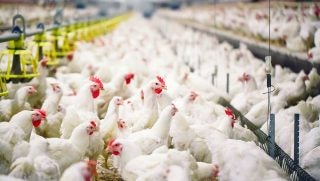The House-Senate tax bill will provide near-term benefits to many ag producers, but rate reductions and estate tax changes beneficial to ag are temporary, according to national ag accounting and business advisory firm K·Coe Isom.
“The core of this bill is a 21% flat rate for C corporations,” said Doug Claussen, Principal and CPA with K·Coe Isom. “Most farm businesses are not structured as C corps and won’t benefit from this rate unless they restructure. For farms that are structured as C corps, those in the 15% tax bracket would actually see a tax increase from this flat rate. The majority of farmers, however, are sole proprietors or structured as pass-through entities. These farmers should see some benefits from the deduction for business and pass-through income, immediate expensing of capital purchases, and to some degree from reductions in individual rates.”
The tax bill cuts the tax rate for C corporations to 21% from 35% beginning in 2018 and reduces tax rates for the highest individual earners. The bill also includes a 20% deduction on business and pass-through income and flattens and reduces individual rates — though by a much smaller amount. Finally, the tax bill effectively repeals the alternative minimum tax for many farmers and will allow for immediate expensing of most capital purchases.
In addition to positive changes for agriculture, the tax bill also repeals or limits a number of provisions important for farmers:
- The bill limits the ability of farmers to carry back losses only two years rather than the current five years.
- The bill limits the ability of larger farmers to deduct business interest expense.
- The bill repeals the Domestic Production Activities Deduction (DPAD/Sec. 199) deduction used by many farmers and cooperatives.
- The bill eliminates the use of like-kind exchanges for personal property.
“One key concern among agriculture is that the benefits of this bill – lower rates, bonus depreciation for immediate expensing, increased limits for estate taxes – these are all temporary. The individual rates and estate tax changes expire at the end of 2025 while the bonus depreciation begins phasing out in 2022 and fully expires in 2027. The loss and limitations on deductions currently used by farmers, however, are permanent,” said Claussen. “Farmers could see their taxes increase in the future if rate reductions or enhanced expensing provisions are allowed to expire.”
“We will be working closely with our clients over the coming months to help them assess their individual tax situations and determine whether they need to reorganize or otherwise change their operations to benefit from this bill,” said Brad Palen, a Principal and ag CPA with K·Coe Isom. “The tax code didn’t get much simpler – in some respects this bill actually raises new questions for farmers. We believe that many ag businesses will do just fine with these changes but we’ll need to think carefully to tailor solutions for each individual ag business we serve.”


